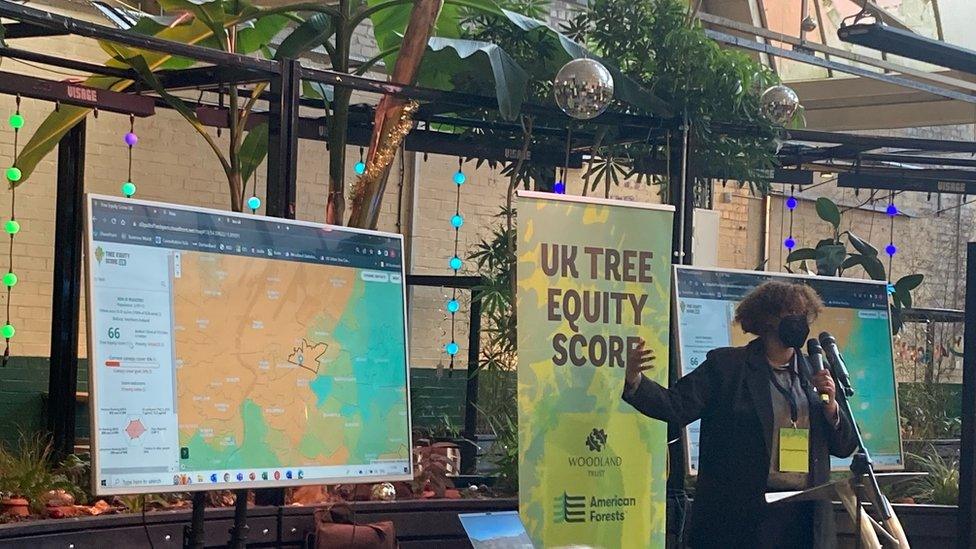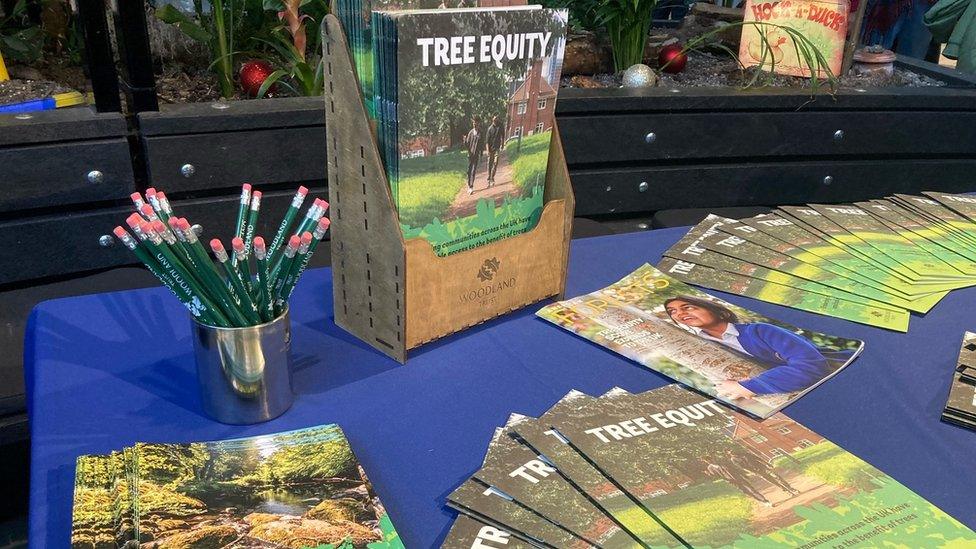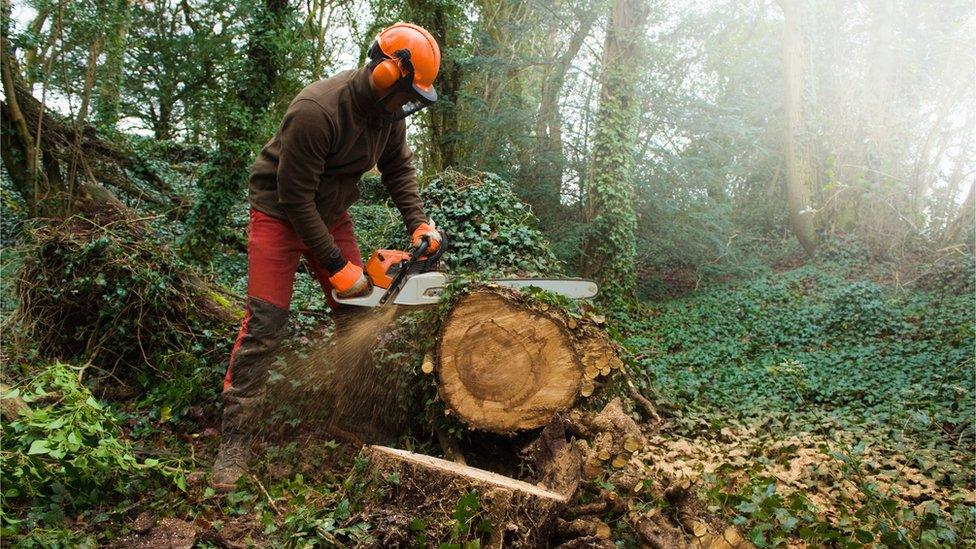Tree benefits being missed out on in more than 200 areas
- Published
- comments

Trees play a key part in addressing extreme heat, pollution and other environmental hazards
More than 200 neighbourhoods across Northern Ireland could be missing out on the health benefits of trees.
The Tree Equity Score has been applied to the UK for the first time, with scores of less than 70 indicating a need for tree planting.
It measured tree cover in 536 urban areas and found half had unequal access to trees.
It revealed more than 178,000 trees were needed for all areas of Northern Ireland to reach a minimum score of 70.
Trees play a key part in addressing extreme heat, pollution and other environmental hazards such as flooding.
The online tool, external measures how successfully the benefits of urban tree canopy are reaching communities, especially those on low incomes.

The Tree Equity Score has been applied to the UK for the first time, with scores of less than 70 indicating a need for tree planting
The Tree Equity Score is calculated using six different measures with the baseline adjusted for just how much space is available to plant in.
"Trees play offence and defence" when it comes to climate change, Chris David from American Forests said.
The recently-launched Belfast Tree Strategy, external aims to more than double the city's canopy cover to 30% and to undertake tree equity mapping so that tree planting efforts and community engagement can be focused in the areas that most need it.
The Tree Equity Score was launched by American Forests and has been brought to the UK by the Woodland Trust and the Centre for Sustainable Healthcare.
Paul Armstrong from the Woodland Trust said it was "particularly fitting" to launch the tool in Belfast and that the charity hoped it would contribute "to an increase in tree cover in the areas that need it most".

The Office for National Statistics estimated the annual economic value of broadleaved woodland in regulating air pollution in the UK was more than £1bn
The amount of trees needed in Northern Ireland would sequester more than 3,000 tonnes of carbon per year, equivalent to the emissions from 5,667 petrol-powered cars and would prevent more than 4,500 swimming pools' worth of storm water run-off (304 million litres) per year.
The tool has been used in the United States since 2021, where Benita Hussain from American Forests said it had shown "how data-driven strategies can transform communities through urban forestry, enhancing not only environmental health, but also social wellbeing".
A recent bulletin, external from the Office for National Statistics estimated the annual economic value of broadleaved woodland in regulating air pollution in the UK was more than £1bn - the highest of any habitat.
Of this, the value of urban trees contributed more than half.
Sarah Jordan, director of green space for health at the Centre for Sustainable Healthcare, said it was known that trees had "a huge positive impact on people's health and wellbeing" and she added that the Tree Equity Score could be used to target tree-planting to reduce health inequalities.
Related topics
- Published2 November 2023

- Published5 October 2023
